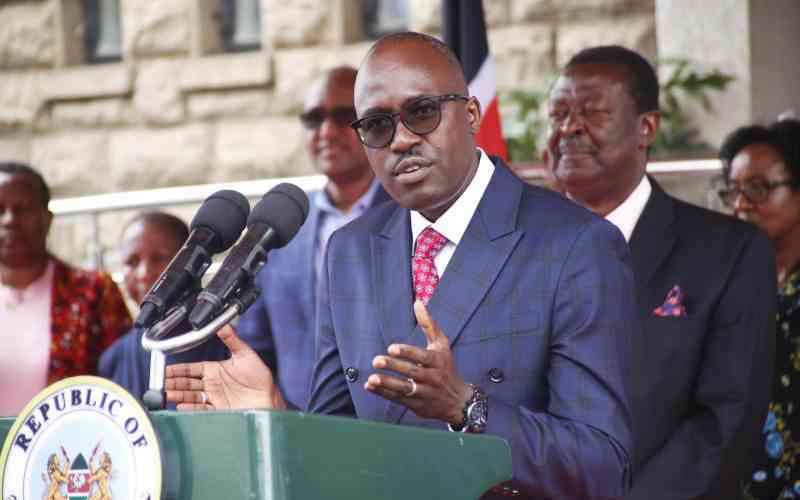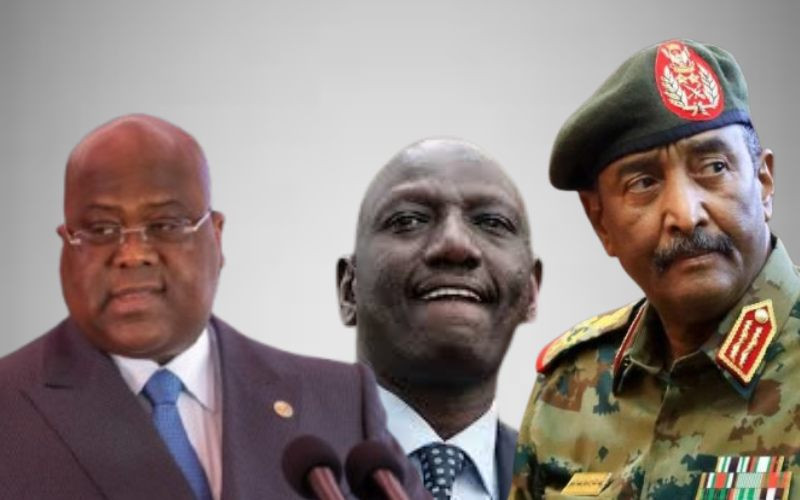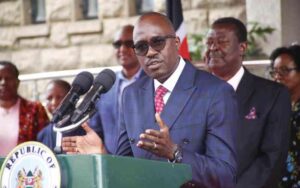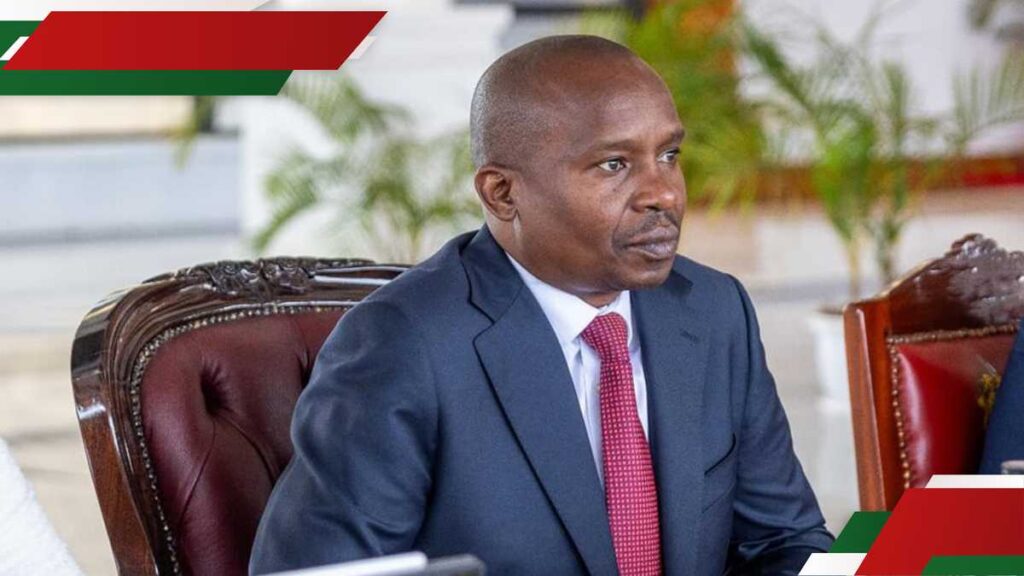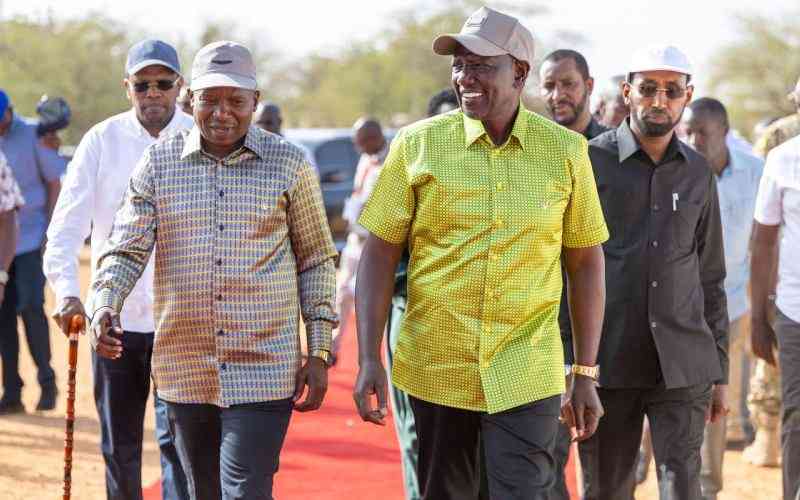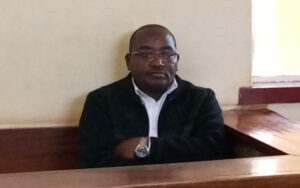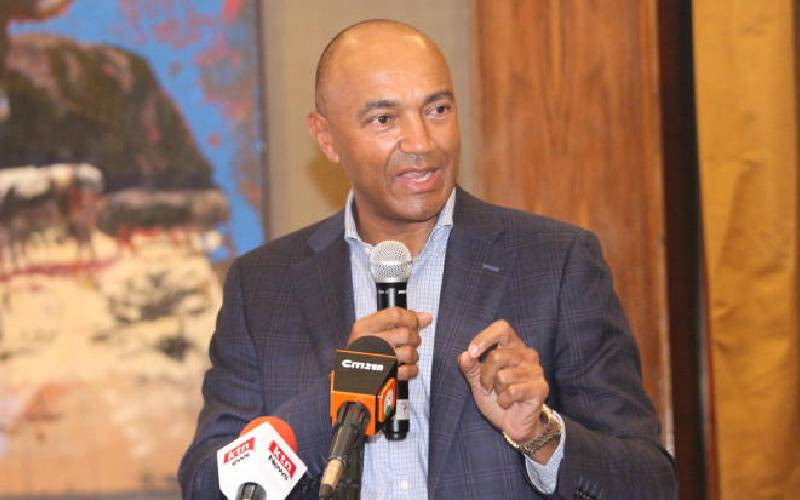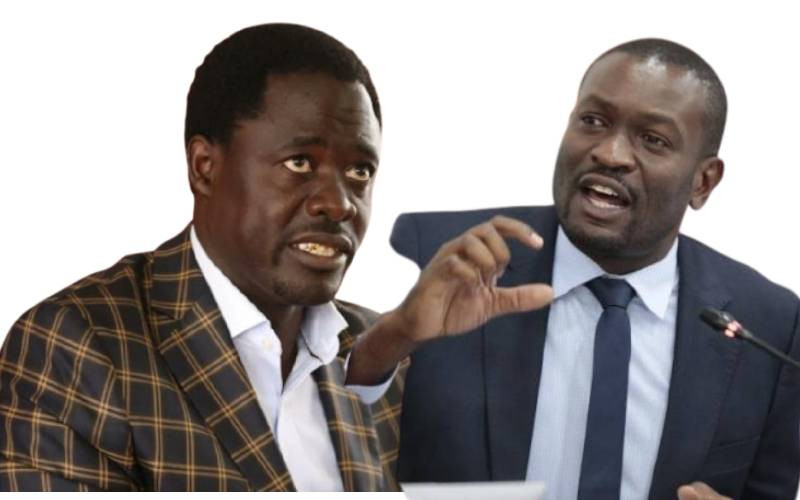Kenya’s losing streak didn’t begin with Raila Odinga’s failed African Union Commission (AUC) bid last week—it’s been unraveling for a while.
The country’s foreign policy has now come under intense scrutiny this week, with experts warning of potential diplomatic fallout if Kenya does not reassess its approach.
The debate follows a controversial event in Nairobi, where Sudan’s Rapid Support Forces (RSF) attempted to form a parallel government—raising concerns over Kenya’s neutrality in the Sudanese conflict.
Foreign policy refers to the strategies a state employs in its interactions with other nations and international organisations.
While Kenya has historically positioned itself as a regional mediator, recent developments suggest a shift that could strain its diplomatic ties.
The Sudan controversy
Speaking to The Standard on phone, Caleb Amisi, a member of the National Assembly’s Defence and Foreign Affairs Committee avers that such a high-profile foreign event should have received government clearance.
“Whereas Kenya has provided what we call ‘good office’, meaning a neutral ground for conflict resolution through negotiations, conciliation, arbitration, and peaceful settlement of disputes; this case of RSF seems skewed towards one side of the parties in the Sudan conflict,” the Saboti MP says.
He warned that by allowing an event of this nature, Kenya risks breaching international norms.
“Kenya cannot purport to host an event organised by a government of another sovereign state especially when one party to the conflict rejected its offer to mediate. This is alien even in international law, and the continued activities of this nature breach the laid out norms, practices, and international convention that Kenya is a signatory to,” says Amisi.
Amisi, a master’s student in International Relations has called on the Foreign Affairs Cabinet Secretary to appear before Parliament (an oversight body) to clarify Kenya’s stance and prevent further diplomatic tensions.
As of publication of this article, The Standard reached out to Foreign Affairs Principal Secretary Korir Sing’oei who requested a written communique but has yet to respond.
Diplomatic fallout
Diplomacy experts have now cautioned that Sudan would not take Kenya’s involvement lightly.
Stay informed. Subscribe to our newsletter
In an interview on KTN, international relations expert Dr. Edgar Githua argued; “Sudan will not take it lightly because currently, General Burhan, who leads the SAF, is the bonafide leader. So hosting the RSF…Nairobi is caught in a diplomatic impasse. That’s another war front we are opening without knowing,” he said.
He urged the government to refrain from interfering in Sudan’s internal affairs and instead engage through the Intergovernmental Authority on Development (IGAD).
“When we allow the RSF to launch operations from Nairobi, we risk being perceived as backing a rebel group. This could damage our relationships within the Arab world and the Middle East,” he warned.
So far, the RSF and its supporters have attempted to hold two events in Nairobi to declare a parallel government, but both were postponed under unclear circumstances.
On Tuesday, an event was set to proceed but was abruptly called off hours before the signing ceremony, with organisers rescheduling it for Friday.
The Sudanese government has since condemned Kenya for what it calls interference in its internal affairs.
Kenya’s diplomatic row with Sudan adds to a series of foreign policy blunders that have drawn criticism.
Shortly after Odinga lost his bid for the African Union Commission chairmanship, President William Ruto’s remarks appeared to irk Djibouti. He expressed disappointment over Odinga’s loss, calling it a ‘missed opportunity for Africa,’ a statement some viewed as a slight against Djibouti’s winning candidate.
In January, as conflict in the Democratic Republic of Congo (DRC) escalated, Ruto publicly shared details of a phone call with France President Emmanuel Macron, drawing backlash from African countries opposed to Western interference in regional affairs.
With diplomatic tensions mounting, experts say Kenya must carefully recalibrate its foreign policy to avoid further straining its relationships on the continent and beyond.



